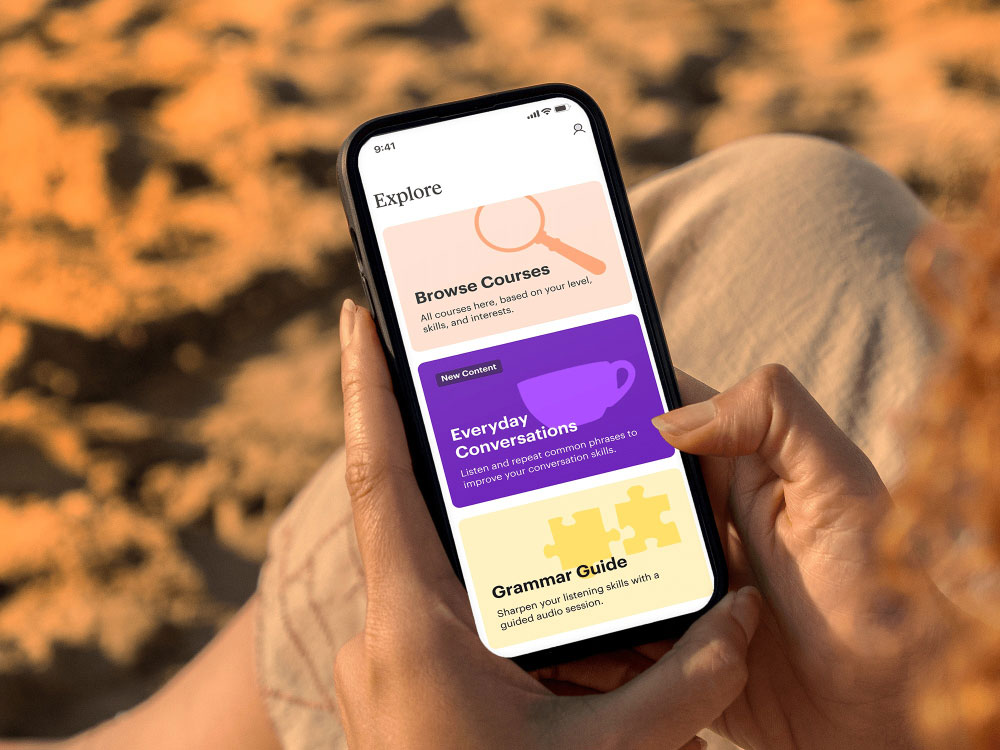Babbel extends free courses in three languages for Ukrainians
Babbel continues providing free language courses to Ukrainians, with 750,000 users learning English, German, and Polish since 2022.


The German company Babbel, which developed language courses for Ukrainians at the beginning of the full-scale invasion of Russia, has announced that it will continue to provide free access to all Ukrainian-speaking users, as per the company’s press release.
According to the company, about 750,000 Ukrainians have registered on the Babbel online platform to learn English, German, and Polish since 2022. Among users living in Ukraine, English is the most popular language (70%), while German is the most popular among those who have left the country (half of the users study it).
To support Ukrainians who were forced to leave the country and adapt to a new environment, Babbel has created learning courses for Ukrainian-speaking users for the first time. Previously, the app did not have Ukrainian as a base language and was not popular in Ukraine. These courses consist of short lessons and are aimed at real-life everyday situations, which makes it possible to put the language into practice right away.
“Knowledge of the language is always the key to mutual understanding between people, and for Ukrainians who fled their homes because of the war, it is a matter of survival,” says Arne Schepker, CEO of Babbel. “In February 2022, we saw how difficult it was for Ukrainians who moved to other countries and local volunteers to find common ground. That’s when we put aside commercial tasks and focused on developing free Ukrainian courses – we just knew it was the right thing to do”.
Now, Babbel’s team is working on new content, for example, employment topics such as integrating into the job market, to make the courses even more useful for Ukrainian-speaking users.
The company emphasizes that access to the Ukrainian language courses has been and will continue to be free of charge. In addition, the Babbel mobile app can work without the Internet if you download the lessons to your device beforehand, which can be useful during long power outages or a lack of stable connection.
To learn more about the training and register, please follow this link: https://ua.babbel.com/
About the project
Babbel is a Berlin-headquartered company that develops an ecosystem of digital products for learning foreign languages. Babbel unites several services: the mobile application for self-study Babbel App, lessons with tutors Babbel Live, podcasts Babbel Podcasts, and the corporate B2B solution Babbel for Business.
Founded in 2007, Babbel App was the world’s first language-learning app. The company uses a paid access model – as of today, Babbel has already sold more than 16 million subscriptions, making it the best-selling language learning solution in the world.
Babbel offers to learn 14 languages. More than 650 certified teachers and linguists are working on the courses, constantly improving the materials and supplementing them with interactive, live lessons, games, audio, and video, which helps to focus on using the language in real-life situations. Research by linguists from Michigan State University, Yale University, and the City University of New York has demonstrated the effectiveness of Babbel’s teaching methods.
Experts worldwide recognize Babbel’s products’ combination of technology and personalization. This year alone, Babbel was included in the list of the most innovative digital learning companies from Global Silicon Valley and became a finalist at the EdTech Awards 2024.
Related:
- Ukrainian NGO launches free Ukrainian language course for international volunteers on Ukraine’s Independence Day
- First bilingual school for Ukrainian children opens in Hungary
- Ukraine launches Army+ app to reduce paperwork
- Survey shows significant increase in Ukrainians considering Ukrainian their native language
- Ukrainians can now digitally trade cars through state’s Diia app
- Russians are retraining Ukrainian language teachers to teach Russian in occupied territories of Ukraine
- Why Ukraine can’t solve its language problem by adopting policies from Switzerland or France



